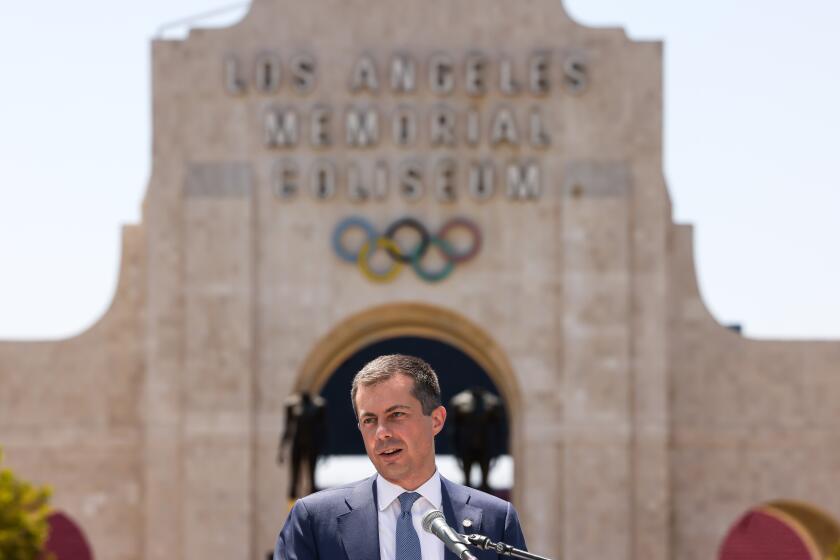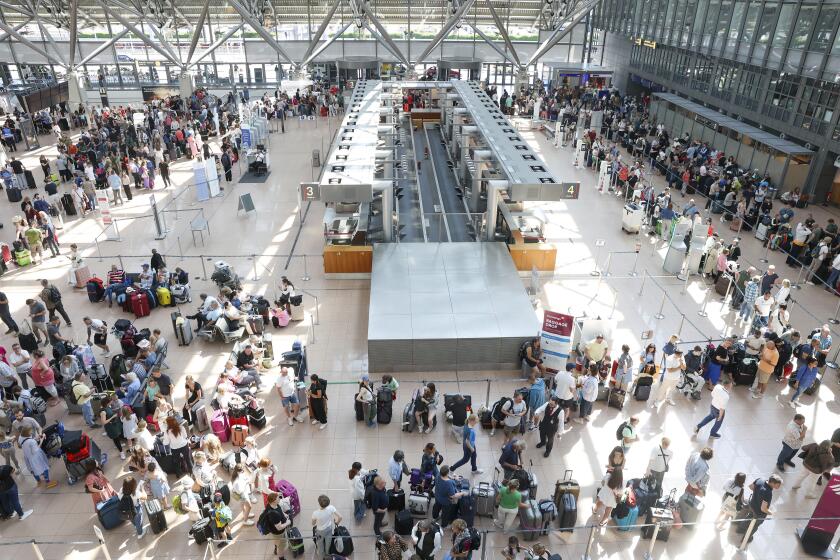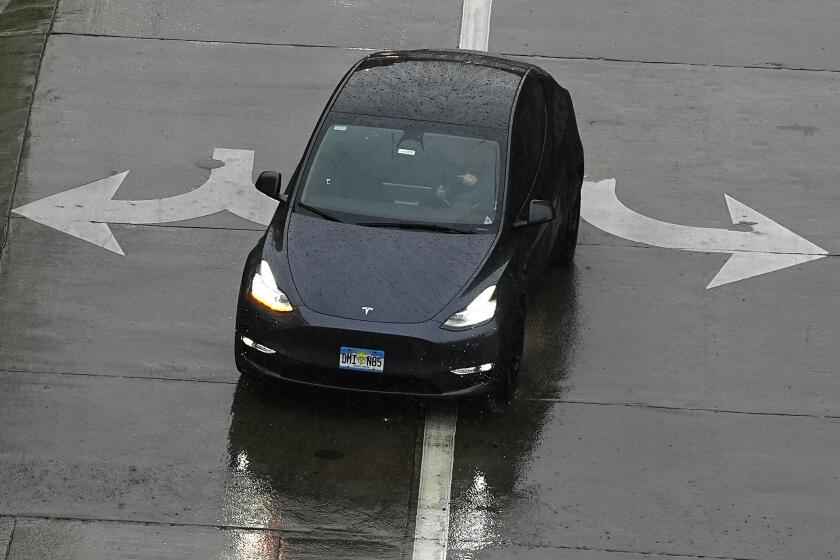Informed Opinions on Today’s Topics : Would L.A. Grind to a Halt Without Gas?
In California, three factors--reduced production, increasing demand and new state environmental regulations to require cleaner-burning gasoline--have recently pushed up prices at many gas pumps to more than $1.50 per gallon and as high as $2 in some places.
While this is not as severe a crisis for Californians as the oil shortages of the 1970s, the surging prices have given motorists something to think about.
Even with the eventual prospects of electric vehicles and a commuter rail system, and current attempts to promote car pooling, a question that may seem silly to this car-obsessed city comes to the fore.
Could Los Angeles survive without gasoline?
Don Schultz, president of the Van Nuys Homeowners Assn.:
“Absolutely not. Los Angeles . . . is an automotive town. . . . Frankly, I drive for a living. I’m a real estate appraiser and I have to drive. I’m sure there are people who are in a lot less advantageous situations that would suffer even more.”
Kenneth Green, director of environmental studies for the Reason Foundation:
“The answer would be yes, but at a price. I don’t think Los Angeles could survive without an automotive motor fuel, whether you move to natural gas or propane. . . . The question is, how much economic harm are you willing to endure? All of the alternatives are more expensive. . . . [Current gas prices] won’t stay that high and won’t get much higher because if it stays up long enough, people will start moving to those alternatives. That’s how the market works.”
Stewart Prince, Cal State Northridge expert in automotive emissions:
“Compressed natural gas is a totally viable alternative. . . . Compressed natural gas produces much less emissions. We could survive and it may be a blessing in disguise. . . . The problem with compressed natural gas is that the infrastructure is not there right now. [But] if and when you have it, the conversion is very easy. . . . It’s not a renewable resource, but it’s available locally and it’s abundant.”
Jim Smart, Metropolitan Transportation Authority spokesman:
“In the ’79 crisis . . . we turned back large numbers of people who could not get on buses. It’s a very fragile system and under your scenario it wouldn’t work for very long. . . . One of the reasons we are building the train system that we are today is because of the gas crisis of the 1970s. . . . People are very good shoppers . . . they will ride trains if it saves time and money.”
Tim Carmichael, policy director, Coalition for Clean Air:
“Not today. Our culture, especially California, has become so addicted to gasoline, it’s going to take some time for us to break the habit. But it’s definitely the direction we have to go in. . . . With new fuels, natural gas [and electric vehicles], there is potential to wean ourselves from gasoline and clearly, it’s got to happen.”
On the Issue appears every Tuesday. Please send suggestions for possible topics to On the Issue, Los Angeles Times, 20000 Prairie St., Chatsworth 91311. Or fax it to (818) 772-3338. Or e-mail it to valley@latimes.com. Please include your name and daytime phone number.



